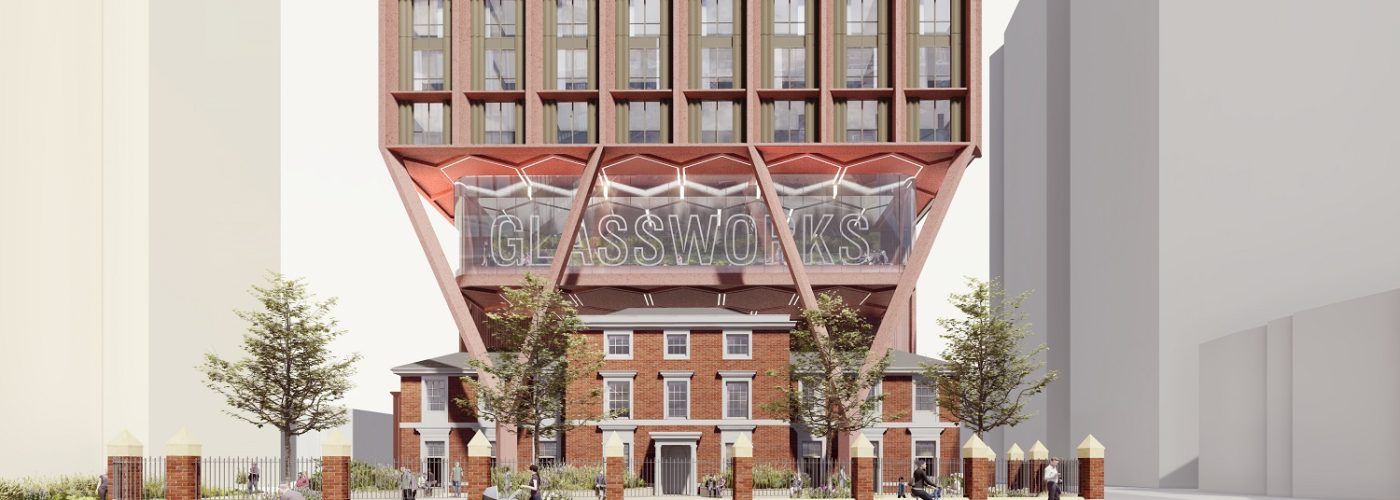Plans to transform a derelict hospital in Birmingham into a 42-storey skyscraper with 300 apartments have been submitted by planning, design and development consultancy Marrons on behalf of HJB Investments.
Dating back to the early 19th century, the Grade II-listed former Royal Orthopaedic Hospital, in 80 Broad Street, was last in use as a bar, restaurant and nightclub, which closed in 2020. The building, known as Islington Villa, has remained vacant ever since and fallen into a state of disrepair.
HJB Investments is now looking to restore the historic building and bring the site back into use by constructing a 133.5m tower with 300 build-to-rent homes, 20% of which will be affordable. The plans – designed by architects at Marrons – also include the creation of a: 12,000 sq ft flexible community facility; 6,000 sq ft viewing platform with café and exhibition area; residential rooftop terrace; and cycle hub with 300 parking spaces.
Charlotte El Hakiem, planning director at Marrons, who led the application, said: “Broad Street is undergoing a period of intense regeneration, with the overriding vision of creating a vibrant residential neighbourhood, so we are extremely pleased to unveil plans to transform a beautiful Georgian-style building on under-utilised brownfield land.
“The proposal takes a distinctive and innovative approach that allows for the retention and careful repurposing of a Grade II-listed building to bring it back into public use, while simultaneously creating a striking 42-storey landmark tower that contains much-needed housing to accommodate the city’s ever-growing population.
“Beyond the tangible housing benefits, the proposal promises to significantly enhance the city’s public realm, improve connectivity, and invigorate the local economy through the creation of flexible community spaces and onsite amenities – delivering extensive community and public benefits to the area.”
The mixed-use residential-led scheme is set to create 299 full-time equivalent jobs during the construction phase. Once complete, the neighbourhood is expected to contribute £12.2 million and £8.8 million to the UK and West Midlands economy each year, respectively.
By 1815, Islington Villa was owned by Rice Harris who, along with Owen Johnson and John Berry, established the Islington Glassworks in 1816. From 1842, 80 Broad Street became the new premises of the Birmingham Lying-in Hospital and Dispensary for the Diseases of Women and Children for Birmingham and the West Midlands Counties. By 1955, the building had been renamed the Royal Orthopaedic Hospital. To supplement the planning application, Marrons also completed a heritage impact assessment and a socio economic affordable housing statement.
Building, Design & Construction Magazine | The Choice of Industry Professionals





